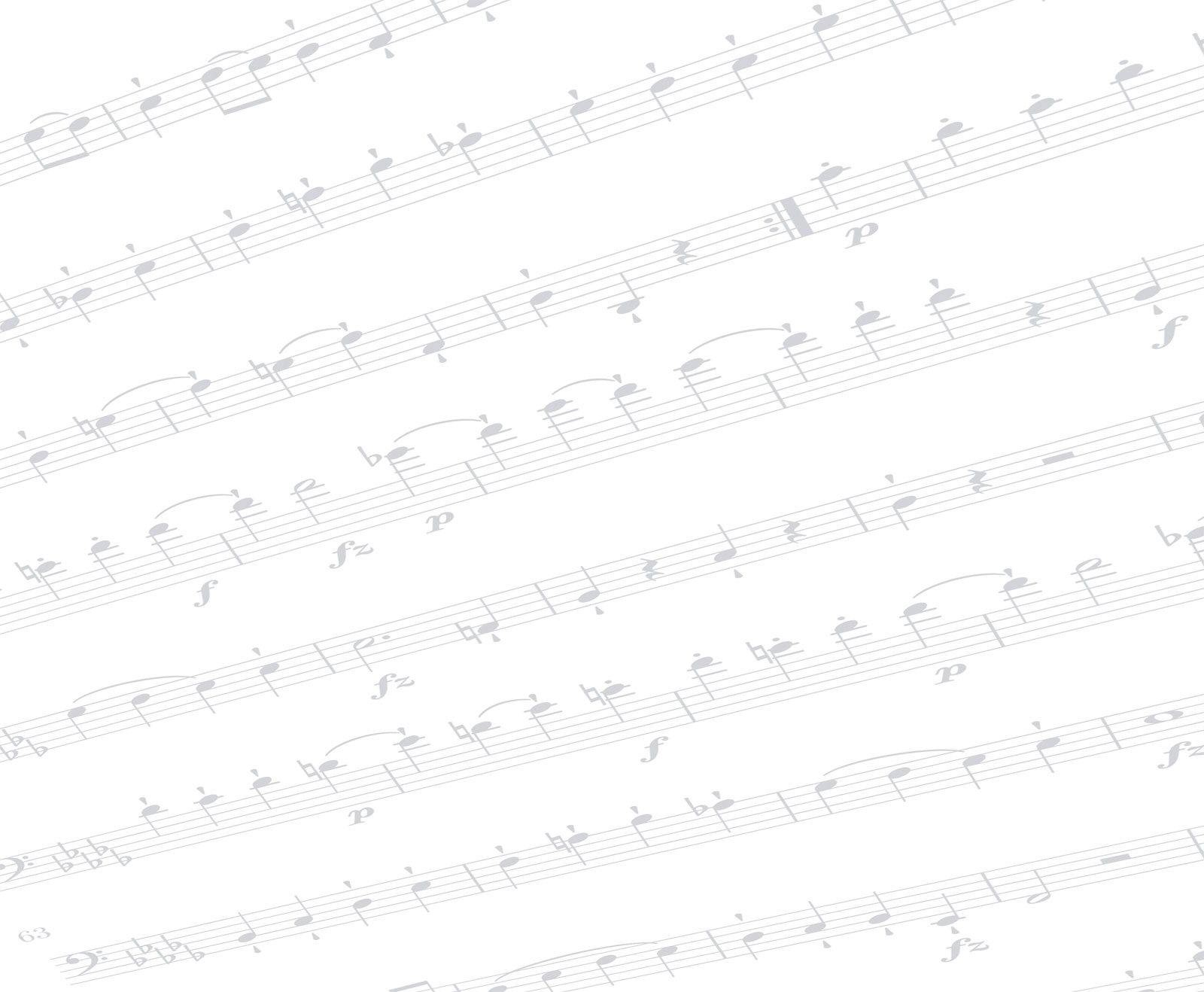Current – 2023-24
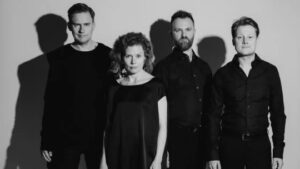
The Finnish are coming! One of Europe’s most celebrated quartets is making their first visit to the WCMS. Winners of the International Shostakovich Quartet Competition in Moscow (2004), the International Joseph Haydn Chamber Music Competition in Vienna (2007) and the Finland Prize, this ensemble is now making itself known in the States. The quartet is acclaimed for its recordings of traditional quartet repertoire as well as its concert offerings of new and lesser-known works. The BBC selected Meta4 as its New Generation Artist for 2008–2010 and in 2013 Jenny and Antti Wihuri Foundation awarded the quartet with a special prize in recognition of its work.
They will play works by Saariaho, Shostakovich, and Sibelius.
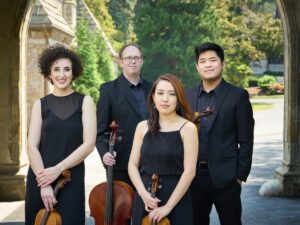
The WCMS is pleased to welcome the Verona Quartet, our neighbors to the north, to this year’s season. Currently in residence at Oberlin College, the Quartet won the 2015 Concert Artist Guild competition and Chamber Music America’s Cleveland Quartet Award in 2020. The Verona Quartet has earned acclaim for its championing of contemporary repertoire and composers, as well as its numerous interdisciplinary collaborations—among them performances with dance ensembles, poets and folk musicians.
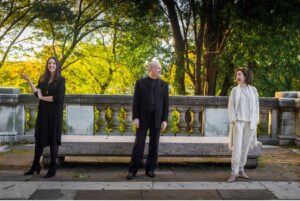
Soprano, viola and piano are probably not a combination that springs to mind when one first thinks of chamber music. However, there is a long tradition of great singers performing salon type songs with an obbligato instrument: Enrico Caruso with Mischa Elman, Marian Anderson with William Primrose; even Bing Crosby and Jascha Heifetz! Since 2011 the stellar artists known as the SPA Trio have continued this tradition.
After 12 seasons in leading roles at New York’s Metropolitan Opera, Susanna Phillips has established herself as one of today’s most sought-after recitalists. She is joined by former principal violist of the New York Philharmonic and two-time Grammy nominee Paul Neubauer; as well as accomplished solo and collaborative pianist Anne-Marie McDermott. Their program will include 19th– and 20th-century art and parlor songs ranging from Mendelssohn to Gershwin.
.
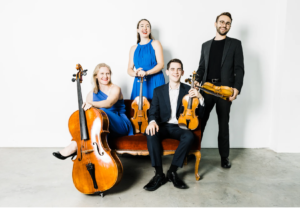
Since their inception in 2016, Callisto has garnered top prizes in nearly every major international chamber music competition and has been hailed by audiences across the globe. Although this is their first performance on our series, this concert is a homecoming of sorts, as the group got their start at the Cleveland Institute of Music. Grand Prize winners of the 2018 Fischoff National Chamber Music Competition and Second Prize Winners of the 2019 Banff International String Quartet Competition, the Callisto Quartet has also taken home prizes from the Bordeaux, Melbourne, and Wigmore Hall competitions. Currently the Fellowship Quartet in Residence at Yale University, Callisto has previously held residencies at Rice University’s Shepherd School of Music and the Escuela Superior de Música Reina Sofía in Madrid, Spain.
.
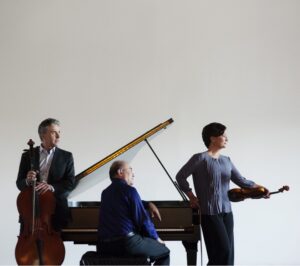
Gryphon Trio is one of the world’s preeminent piano trios, earning acclaim for and impressing international audiences with its highly refined, dynamic, and memorable performances. Together for more than 25 years, the Trio has been appearing on the WCMS for many of those years. Its repertoire ranges from traditional to contemporary, and from European classicism to modern-day multimedia. It is committed to redefining chamber music for the 21st century.
Violinist Annalee Patipatanakoon, cellist Roman Borys, and pianist Jamie Parker are creative innovators with an appetite for discovery and new ideas. They have commissioned over 85 new works, and they frequently collaborate with other artists. They are also committed educators, having founded the outreach program, Listen Up!, which inspired 16 Canadian communities to collaborate on large-scale arts projects. In 2013, Canada Council for the Arts presented Gryphon Trio with the prestigious Walter Carsen Prize for Excellence in the Performing Arts.
.
Past Ensembles
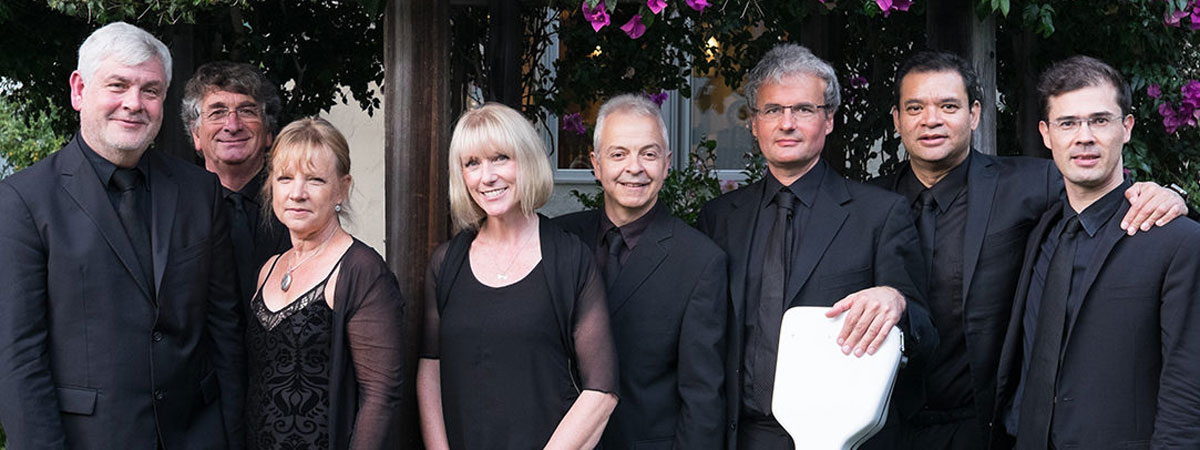
Academy of St Martin in the Fields Chamber Ensemble
The Academy of St Martin in the Fields Chamber Ensemble was created in 1967 to perform the larger chamber works with players who customarily worked together, instead of the usual string quartet with additional guests. Drawn from the principal players of the orchestra and led by violinist Tomo Keller, the Chamber Ensemble performs in all shapes and sizes, from string quintets to octets, and in various other configurations featuring winds. Its touring commitments are extensive and include regular tours of Europe and North America, whilst recording contracts with Philips Classics, Hyperion, and Chandos have led to the release of over thirty CDs.
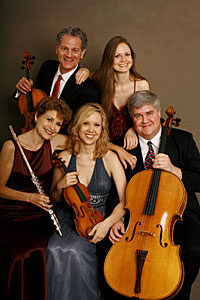
Among today’s most exciting and innovative chamber music ensembles, The American Chamber Players were formed in 1985 by Miles Hoffman from a core group of artists of The Library of Congress Summer Chamber Festival. The ensemble performs repertoire ranging from familiar masterpieces to neglected gems to newly commissioned American works, and its fascinating and delightful programs with varied instrumental combinations have been as enthusiastically praised as its extraordinary, dynamic performances.
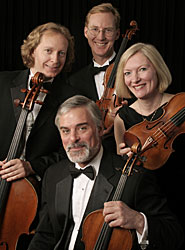
Over the span of more than three decades of performing, the American String Quartet has appeared in all fifty states and at major venues throughout the world to become internationally regarded as one of the finest quartets around. They have been widely acclaimed for their presentations of the complete quartets of Beethoven, Schubert, Schoenberg, Bartok, and Mozart. Their 1998 recording of the complete Mozart quartets was performed on a matched set of Stradivarius instruments, and helped set the standard for this repertoire.
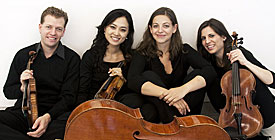
The Biava Quartet is recognized as one of today’s most exciting and accomplished young American string quartets. Winner of the Naumburg Chamber Music Award and top prizes at the Premio Borciani and London International Competitions, the Quartet has established an enthusiastic following in the United States and abroad, impressing audiences with its sensitive artistry and communicative powers. Formed in 1998 at the Cleveland Institute of Music, the Quartet takes its name from Maestro Luis Biava, a mentor since its inception.
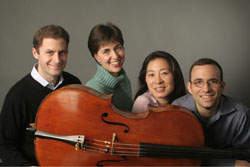
Since its inception in 1992, the Brentano String Quartet has appeared throughout the world to popular and critical acclaim. “Passionate, uninhibited and spellbinding,” raves the London Independent; the New York Times extols its “luxuriously warm sound [and] yearning lyricism.”
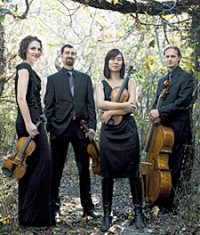
Renowned for bringing fresh excitement to traditional string quartet repertoire as well as for creating insightful interpretations of new music, the Chiara String Quartet captivates its audiences throughout the country. The Chiara has established itself as among America’s most respected ensembles, lauded for its “highly virtuosic, edge-of-the-seat playing” (The Boston Globe).
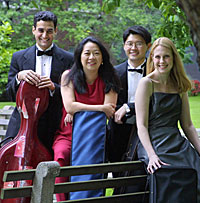
The Daedalus Quartet is a lively young group that has received a great deal of attention since its founding in 2000. It won the Grand Prize of the Banff International String Quartet Competition in 2001, and Lincoln Center’s Martin E. Segal Award in 2007. The Daedalus Quartet was designated by the Chamber Music Society of Lincoln Center as the Chamber Music Society Two quartet for last year’s season and the year before. This is a residency program which offers high-profile performance opportunities, artist collaboration, and professional training to outstanding young performers in the early stages of major careers.
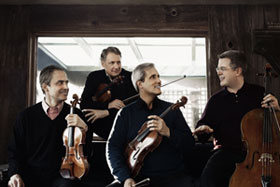 The Emerson String Quartet has an unparalleled list of achievements over three decades: more than thirty acclaimed recordings, nine Grammys® (including two for Best Classical Album), three Gramophone Awards, the Avery Fisher Prize, Musical America’s “Ensemble of the Year” and collaborations with many of the greatest artists of our time.
The Emerson String Quartet has an unparalleled list of achievements over three decades: more than thirty acclaimed recordings, nine Grammys® (including two for Best Classical Album), three Gramophone Awards, the Avery Fisher Prize, Musical America’s “Ensemble of the Year” and collaborations with many of the greatest artists of our time.
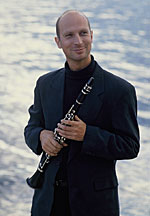
Internationally acclaimed clarinetist Håkan Rosengren has performed as soloist, recitalist and chamber musician all over Europe, the United States, Israel, Brazil and Asia—from Berlin, Beijing and Bratislava, to Tel Aviv, Vilnius and Warsaw. Rosengren’s repertoire includes all the traditional works for clarinet solo and chamber music he has performed the Messiaen Quartet for the End of Time on at least 50 occasions throughout the world and has recorded the work both for Caprice and for CD Accord, that latter winning nomination for the Polish Frederyk Award.
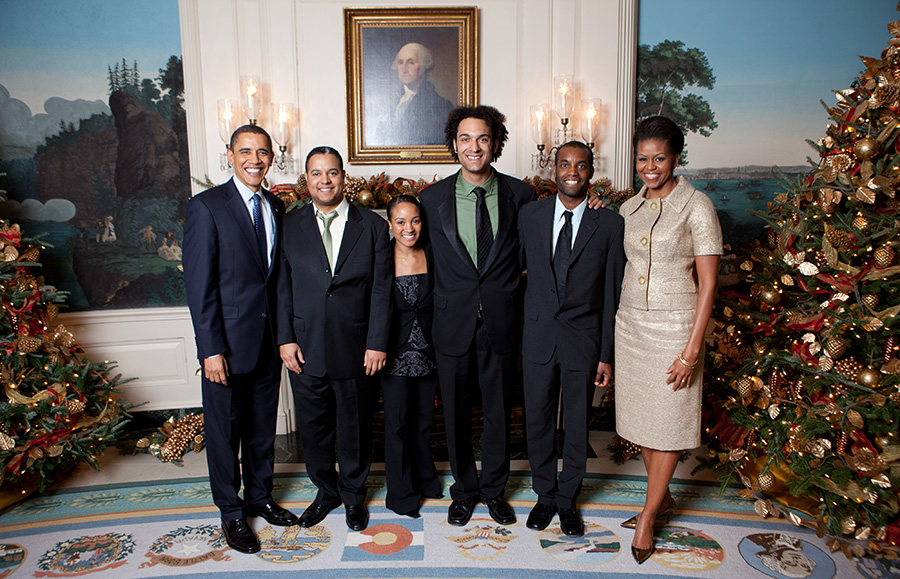
Harlem Quartet advances diversity in classical music while engaging new audiences with varied repertoire that includes works by minority composers. Their mission to share their passion with a wider audience has taken them around the world; from a 2009 performance at The White House for President Obama and First Lady, Michelle Obama, to a highly successful tour of South Africa in 2012, and numerous venues in between.
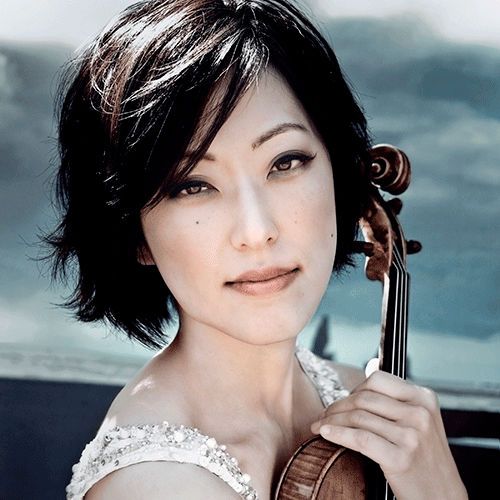
Joan Kwuon is a vibrant, highly acclaimed violinist who consistently receives rave reviews from critics delighted by her fire, elegance, and commanding technique. Kwuon has performed as concerto soloist throughout the world, with orchestras that include the Royal Philharmonic Orchestra, the London Symphony Orchestra, the BBC National Orchestra of Wales, the Moscow State Radio Symphony, the Seattle Symphony Orchestra, the State Symphony Orchestra of Mexico, and more.
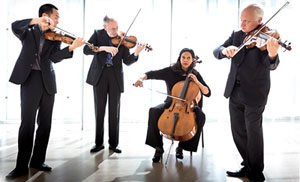
Founded in 1946, the ever-evolving Juilliard String Quartet has become a living American legend. Widely known as the “quintessential American string quartet,” the Juilliard has been recognized for the boldness of its interpretation of the classics, with an equal and parallel tradition of championing the new — a vibrant combination of the familiar and the daring. The Quartet’s sound is famously characterized by clarity of structure, compelling rhythmic drive and an extraordinary unanimity of purpose, no matter the work at hand.
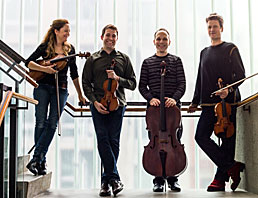
Established in 1989, the St. Lawrence String Quartet has developed an undisputed reputation as one of the world’s great ensembles. Called “witty, buoyant, and wickedly attentive” (The Gazette, Montreal), with a “peerless” sense of ensemble (Financial Times, London), the quartet is celebrated for its “smoldering intensity” (Washington Post), and “flexibility, dramatic fire and… hint of rock ‘n’ roll energy” (LA Times). SLSQ performs around the world and has served as Ensemble-in-Residence at Stanford University since 1998.
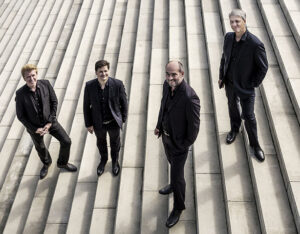
The Quartet was founded in 1964 by Jan Talich Sr., during his studies at the Prague Conservatory, and named it in honour of his uncle Václav Talich, the renowned chief conductor of the Czech Philharmonic Orchestra between 1919 and 1939. During the 1990s, there was a gradual and complete change in personnel, rejuvenating the Quartet while continuing the tradition of its predecessors through involvement in a wide spectrum of musical engagements and recording activities. Jan Talich Jr., the current first violinist, is the son of the Quartet’s founder.
The Talich Quartet is regularly invited to prestigious chamber music festivals such as the Pablo Casals Festival in Prades, Prague Spring Music Festival, Europalia Festival, Printemps des Arts in Monte Carlo, Tibor Varga Festival of Music, and the International String Quartet Festival in Ottawa; 2015 first appearances included Malta Arts Festival and Kuhmo Chamber Music Festival, Finland.
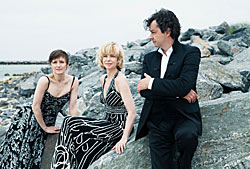
Trio Solisti has forged a reputation as “the most exciting piano trio in America” (The New Yorker), with a passionate performance style that combines exceptional virtuosity and musical insight. Possessing a repertoire that encompasses the standard repertoire and works by contemporary composers, rave reviews follow the trio throughout its concert tours. Noted Wall Street Journal critic Terry Teachout proclaimed that Trio Solisti is “the group that to my mind has now succeeded the Beaux Arts Trio as the outstanding chamber music ensemble of its kind.” The New York Times called it “probably the finest American (piano trio) currently on the field,” and the trio was praised by The Washington Post for a “transcendent performance.”
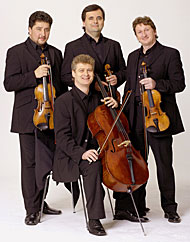
The Wihan Quartet has been described by International Record Review as: ‘one of the best quartets in the world today.’ In 2015 the Quartet celebrated 30 years since its formation, and over the years it has developed an outstanding reputation for the interpretation of its native Czech heritage, and of the many classical, romantic and modern masterpieces of the string quartet repertoire.
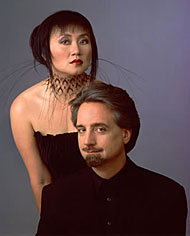
Cellist David Finckel and pianist Wu Han rank among the most esteemed and influential classical musicians in the world today. Their appearances take them to the world’s most prestigious concert series and festivals as soloists, as a duo, and in David’s case, as cellist of the Emerson String Quartet. With repertoire spanning virtually the entire literature for cello and piano, and a commitment to new music, the duo premiered Pierre Jalbert’s Cello Sonata at the Aspen Music Festival in 2007-08, and will premiere a new work for cello and piano by award-winning composer George Tsontakis during the 2008-09 season.
